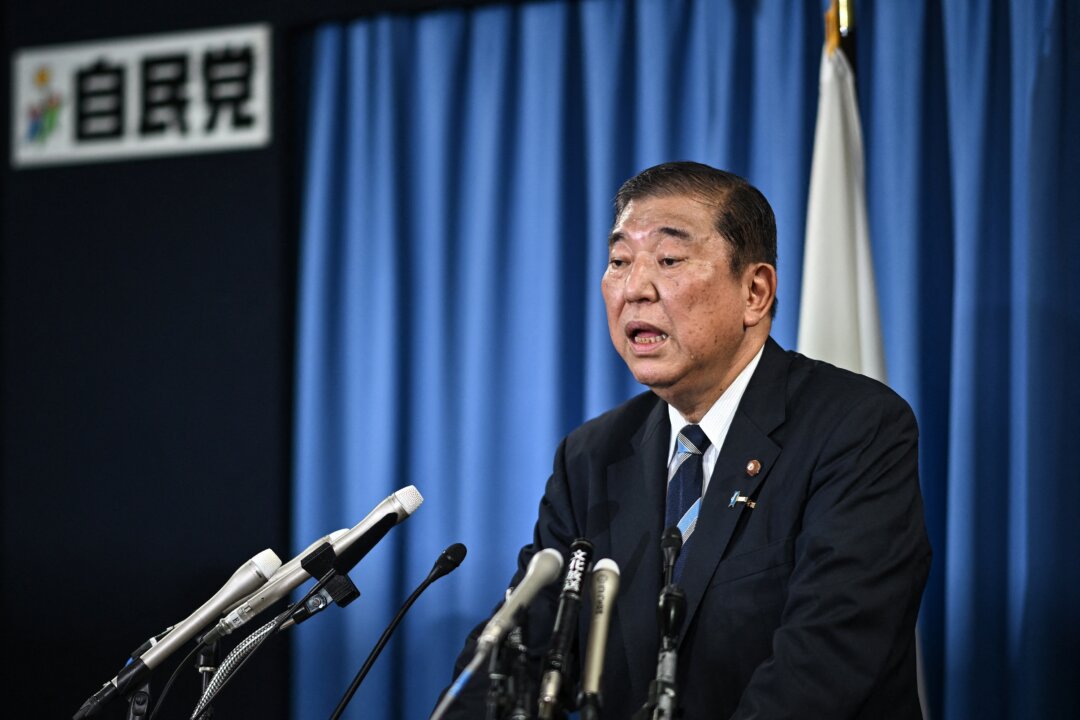Shigeru Ishiba, set to be approved for prime minister on Oct. 1, has sought to strengthen ties with Taiwan amid CCP’s aggression in the Indo-Pacific.
Incoming Japanese Prime Minister Shigeru Ishiba announced on Sept. 30—a day before he is to be approved for his new position—his intention to call for a general election on Oct. 27, a year before one needs to take place. This comes amid increasing military aggression from the Chinese regime in the Indo-Pacific.
“It is important for the new administration to be judged by the people as soon as possible,” Ishiba said at a press conference.
Ishiba was elected as the leader of Japan’s governing Liberal Democratic Party (LPD) on Sept. 27, after outgoing Prime Minister Fumio Kishida announced he would not be seeking reelection as head of the LPD after a series of scandals.
The election would determine the new ruling party for the lower house of 465 members, which Ishida would seek to dissolve on Oct. 10.
Ishiba began selecting cabinet members on Sept. 30. These members are expected to push for an early election with the new prime minister.
Ishiba is the former defense minister of Japan. He has proposed an Asian version of the North Atlantic Treaty Organization and expressed support for Taiwan amid increasing military aggression from the Chinese Communist Party (CCP) against its neighbors.
Last month, a group of bipartisan Japanese lawmakers made a diplomatic trip to Taiwan, during which Ishiba told reporters the East must prevent Taiwan from becoming “the Ukraine of tomorrow.”
Taiwanese President Lai Ching-te, during a luncheon, emphasized the “geographical proximity of Taiwan and Japan, their shared values of democracy and freedom, the close ties between their peoples, and the threat of authoritarian expansionism they both face.”
The last two Japanese administrations were also wary of the CCP’s expanding geopolitical aspirations and sought to strengthen ties with neighbors.
This year, China’s expanded military drills have made breaches into Japanese territory.
On Aug. 26, Japanese authorities reported that a Chinese military plane violated Japan’s airspace for the first time and had to be warned off by Japanese fighter jets.
On Sept. 18, the Japanese defense ministry said the CCP had made an “unacceptable“ breach of Japanese waters for the first time with a Chinese aircraft carrier.
Taiwan has been telling the international community the CCP’s actions are meant to destabilize the region and upend international order, as the United States and regional allies conduct regular military drills in the area with a focus on increased cooperation.
Japan has joined several of these joint exercises, most recently on Sept. 28.
Ahead of the United Nations General Assembly, President Joe Biden hosted the Quadrilateral Summit, telling the leaders of Australia, India, and Japan that communist China is “testing us“ with its aggression in the Indo-Pacific.
After they delivered heads of state opening remarks before the press, Biden told his Quad counterparts that Beijing’s recent actions were a “change in tactic, not change in strategy.”
Reuters contributed to this report.

